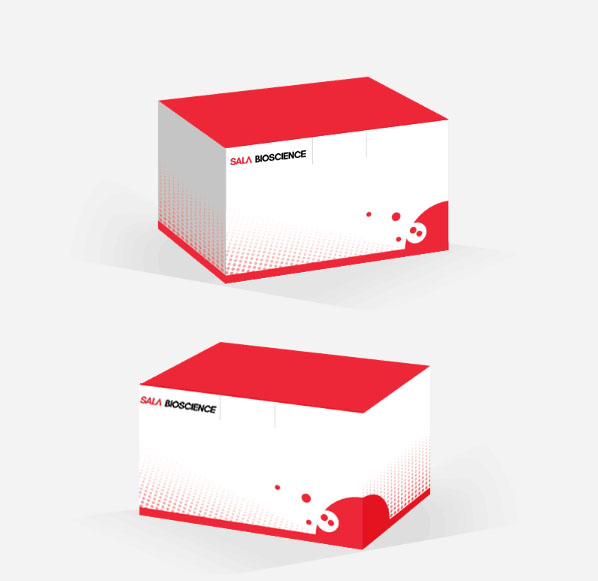Plant Soluble Sugar Content Assay Kit/SLBC0030
- Price:Negotiable
Product Detail

Plant Soluble Sugar Content Assay Kit
Note: Take two or three different samples for prediction before test.
Detection instrument:Spectrophotometer
Cat No: SLBC0030
Size: 50T/48S
Components:
Reagent I: Powder×2. Storage at 4℃ and protect from light.
Reagent II: Liquid 10 mL×1. Storage at 4℃.
Standard: Powder×1, containing 10 mg of anhydrous glucose (loss on drying<0.2%). Storage at 4℃. Dissolve the standard with 1 mL of distilled water to generate a 10 mg/mL glucose standard solution, store at 4℃ and use within 1 week. Or dissolve the standard with saturated benzoic acid solution for a longer time.
Preparation of working solution: Add 5 mL of Reagent II to Reagent I, fully dissolved before use. If it’s hard to dissolve, it can be heated and stirred to auxiliary dissolved. The reagent that can not be used up can be kept at 4℃ for one week.
Product Description:
Sugar is one of the important components of plant, also is the main material of metabolism and storage. Total sugar refers to the reductive monosaccharide in the sample and the sucrose, maltose and starch which can be hydrolyzed or partially hydrolyzed to glucose by this test method.
Anthrone colorimetric method can be used for the determination of soluble monosaccharides, oligosaccharides and polysaccharides. It has the advantages of high sensitivity, simple and quick, and suitable for the determination of trace samples.
Reagents and Equipment Required but Not Provided:
Spectrophotometer, water bath, 1 mL glass cuvette, transferpettor, concentrated sulfuric acid, mortar/homogenizer, distilled water.
Procedure:
I. Sample Extraction:
Suggested 0.1-0.2 g of sample with 1 mL of distilled water, fully grinding, boiling water bath for 10 minutes (cover tightly to prevent water loss). After cooling, centrifuge at 8000×g at room temperature for 10 minutes, then take the supernatant in 10 mL tube, add distilled water to 10 mL, mix thoroughly.
II. Determination procedure:
1. Preheat the spectrophotometer 30 minutes, adjust wavelength to 620 nm, set zero with distilled water.
2. Set the temperature of water bath to 95℃.
3. Standard working solution: Dilute the 10 mg/mL glucose standard solution to 0.2, 0.1, 0.05, 0.025, 0.0125, 0.00625 mg/mL with distilled water.
4. Add reagents with the following list(reaction in EP tube):
Reagent (μL) | Blank tube (B) | Test tube (T) | Standard tube (S) |
Sample | - | 200 | - |
Standard | - | - | 200 |
Distilled water | 400 | 200 | 200 |
Working solution | 100 | 100 | 100 |
Concentrated sulfuric acid | 1000 | 1000 | 1000 |
Mix thoroughly, put the reaction solution in 95℃ water bath for 10 minutes(cover tightly to prevent water loss), detect the absorbance after cooling to room temperature. Transfer 200 μL to a micro cuvette or 96 well flat-bottom plate. Measure the absorption value at 620 nm. A blank tube=A(B), A test tube=A(T), A Standard tube =A(S). ΔA =A(T)-A(B) , A=A(S)-A(B).
III. Calculation:
1. According to the standard curve, add ΔA into the formula (x) to calculate the sample concentration y (mg/mL).
2. Sample weight
Soluble sugar(mg/g fresh weight)=y×V1÷(W×V1÷V2)=10×y ÷W
3. Protein concentration
Soluble sugar(mg/mg prot)=y×V1÷(V1×Cpr)=y ÷Cpr
V1: Sample volume, 0.2 mL;
V2: Extraction volume, 10 mL;
Cpr: Sample protein concentration, mg/mL;
W: Sample weight, g.
Note:
1. Dilute the sample and measure again if ΔA is greater than light absorption value in linear range. When calculation, multiply the calculation formula by the corresponding dilution factor.
2. Due to the strong corrosiveness of concentrated sulfuric acid, please opera with caution.
Recent Product citations:
[1] Li B, Ding Y, Tang X, et al. Effect of L-Arginine on Maintaining Storage Quality of the White Button Mushroom (Agaricus bisporus)[J]. Food and Bioprocess Technology, 2019, 12(4): 563-574.
[2] Zeyong Zhang,Huanhuan Liu,Ce Sun,et al. A C2H2 zinc-finger protein OsZFP213 interacts with OsMAPK3 to enhance salt tolerance in rice. Journal of Plant Physiology. October 2018;(IF2.825)
References:
[1] Buysse J A N, Merckx R. An improved colorimetric method to quantify sugar content of plant tissue[J]. Journal of Experimental Botany, 1993, 44(10): 1627-1629.
[2] Bodelón O G, Blanch M, Sanchez-Ballesta M T, et al. The effects of high CO2 levels on anthocyanin composition, antioxidant
Technical Specifications:
Minimum Detection Limit:0.0007 mg/mL
Linear Range:0.00078-0.25 mg/mL
